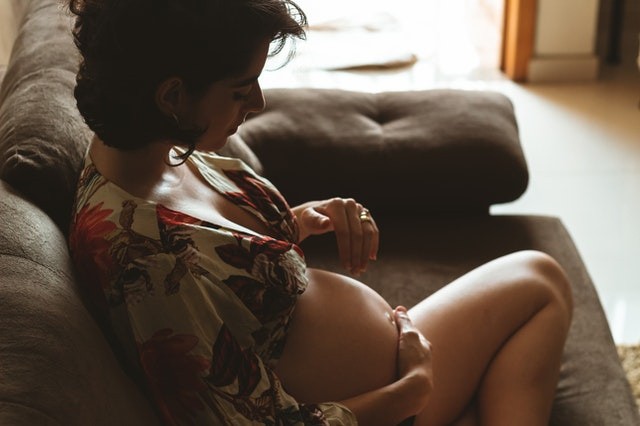A 32-year-old woman was left in intolerable pain from rashes on her stomach. Her belly was covered in red, itchy plaques.
According to The Sun, when Fiona Hooker was pregnant, she initially noticed a small rash on her stomach. She thought it was just a "nettle sting."
When she was 31 weeks along, she decided to consult her doctor after a few days because the itching lingered and worsened. Aside from the unbearable pain resulting from the rashes, the mom from Basingstoke, Hampshire, couldn't stop herself from scratching them. The struggles continued even after doctors prescribed her steroid creams to treat the rashes.

Pemphigoid Gestationis
Hooker said only the third general practitioner she visited told her that her condition was similar to Pemphigoid Gestationis. The GP referred her to a dermatologist who gave her the most potent steroid cream he could get. The patient described her condition as if she was being "allergic to my own baby."
Pemphigoid Gestationis, is a rare autoimmune pregnancy condition. It is a reaction to a gene present in her son's DNA that possibly caused her immune system to attack her own skin.
As specified in a similar report from The New York Times Post, Fiona, also a hypnobirthing teacher, decided to share her story to raise awareness of the condition affecting roughly 50,000 women.
Allergy Linked to DNA
Dermatologists scrambled to get Hooker's condition under control and doctors said the reaction may have been stimulated by a gene in the DNA of her son since she did not suffer from the condition during her first pregnancy with her 3-year-old daughter.
The patient said her pregnancy from 31 to 35 weeks was somewhat hard since her "stomach was on fire." Also, she was quite big and had a toddler, too.
Two days before her due date, the condition became unbearable. However, when she was in labor, she did not feel a thing. According to her, she looked dreadful, but there was no itching.
However, 24 hours after her delivery, it burst out into blisters on her chest, tummy, arms, and legs. According to her, she had a hard time holding her baby due to her condition.
Hooker was shocked with the diagnosis because it was "so rare" and even hoped that the doctors got it wrong. They believed that the baby inherited something in his father's DNA that triggers the placenta to attack a protein in the skin. So her body attacks her own skin.
Although her condition has improved and she only has to use creams on occasion, the doctors have warned her that she might still suffer minor flare-ups. So, Hooker and her husband, Warren, 35, decided not to have more kids anymore.
How to Treat the Condition
According to the Genetic and Rare Diseases Information Center, the objectives of treating women's Pemphigoid Gestationis condition are to get rid of itching, avoid the formation of blisters, and treat any secondary infections.
Treatment may be according to the severity of each patient, and the risks and advantages of treatments should be considered for both the mother and her baby.
In most circumstances, PG resolves on its own within days after the delivery. Therefore, treatment can typically be tapered off and stopped.
Topical corticosteroids may be applied in milder cases. Meanwhile, oral corticosteroids are needed in more severe conditions.
To relieve itching, oral antihistamines may also help. Intravenous immunoglobulin (IVIG) has been reported to be effective for the condition, too.
Certain immunosuppressive medications may work, too. However, their safety during pregnancy and, or breastfeeding should be considered.
Related information about Pemphigoid Gestationis is shown on Pregnancy Data's YouTube video below:
RELATED ARTICLE : Study Offers Hints on the Reason Pregnancy May Raise Danger of Rejection of Organ Transplant
Check out more news and information on Pregnancy in Science Times.
© 2026 ScienceTimes.com All rights reserved. Do not reproduce without permission. The window to the world of Science Times.












